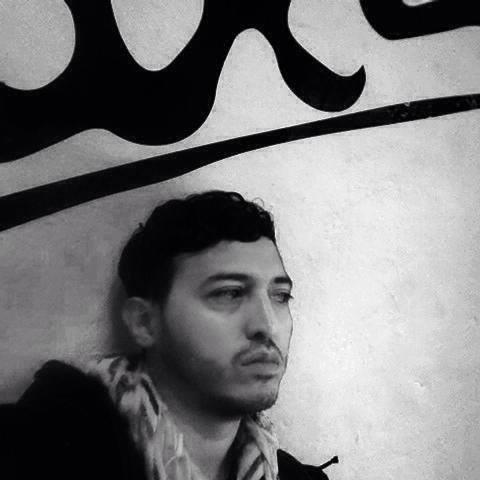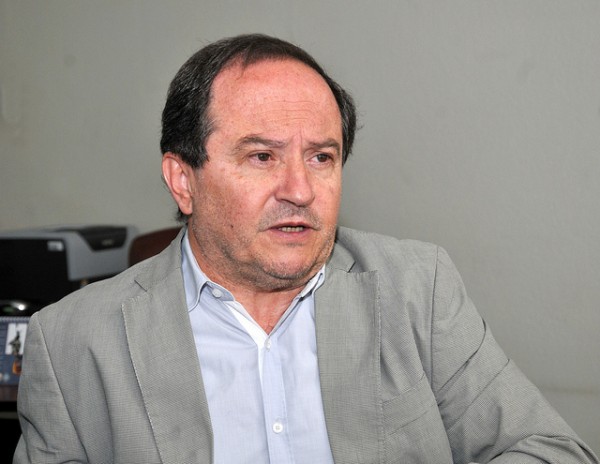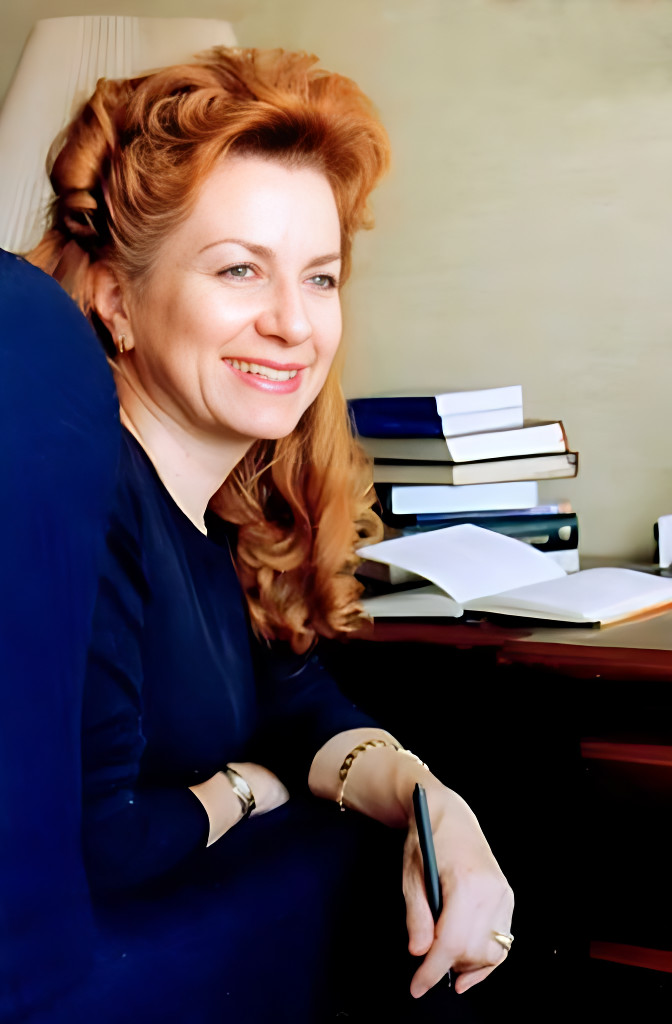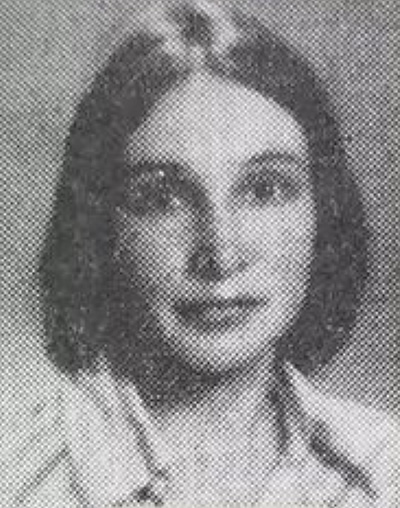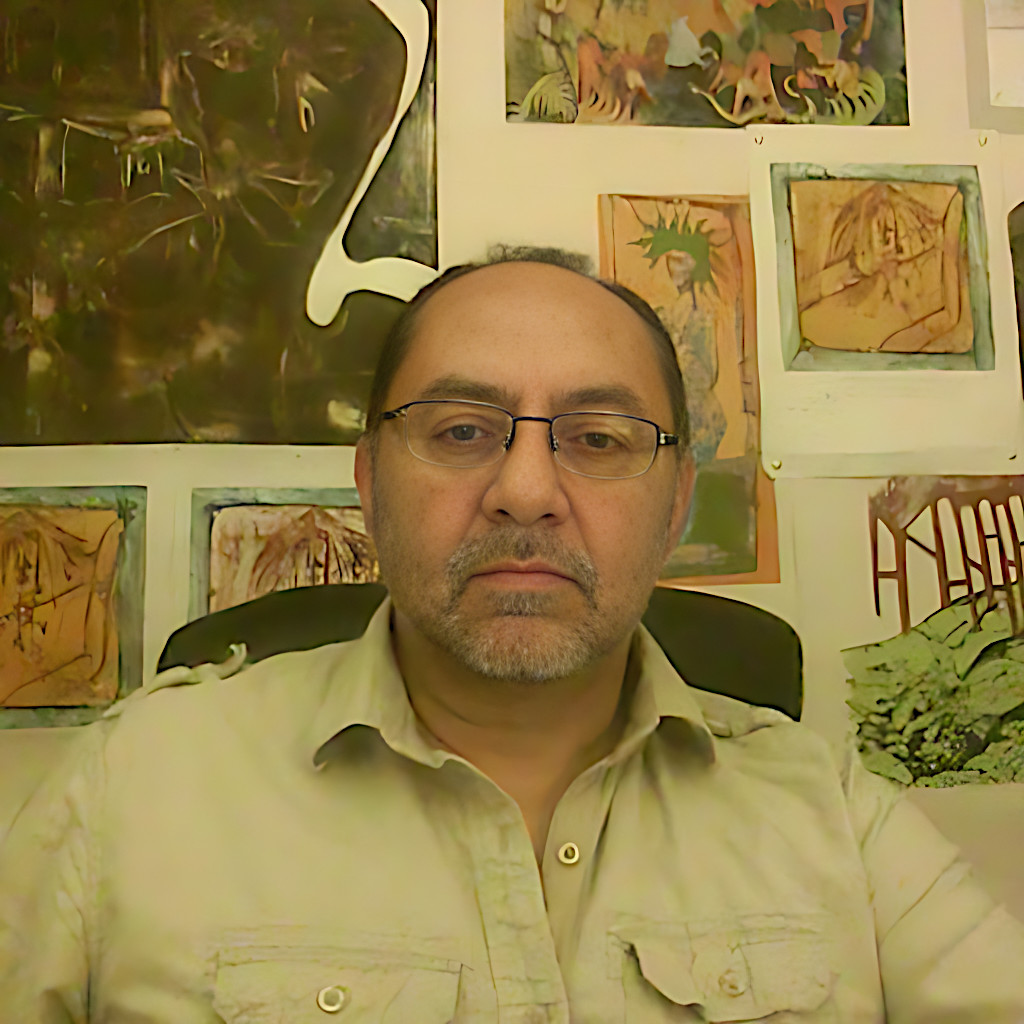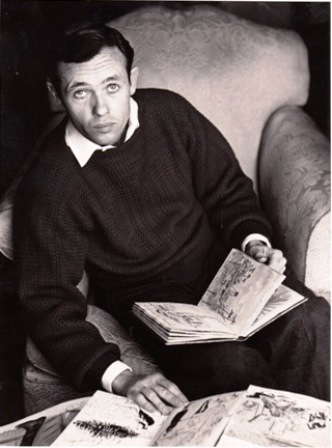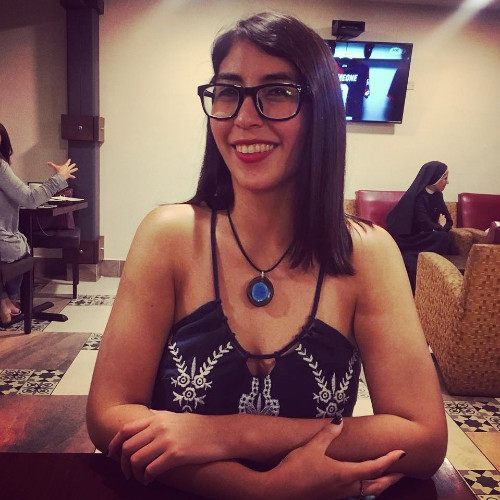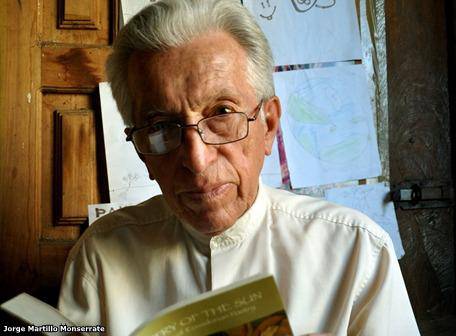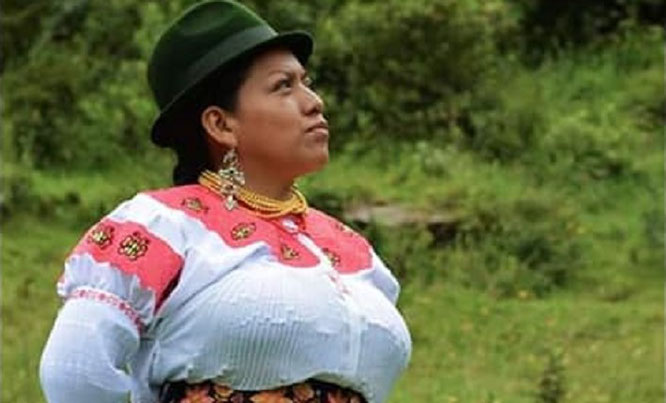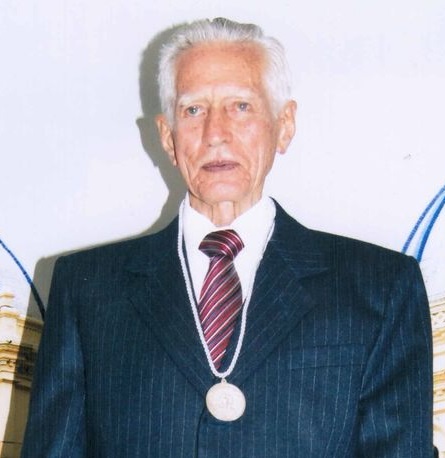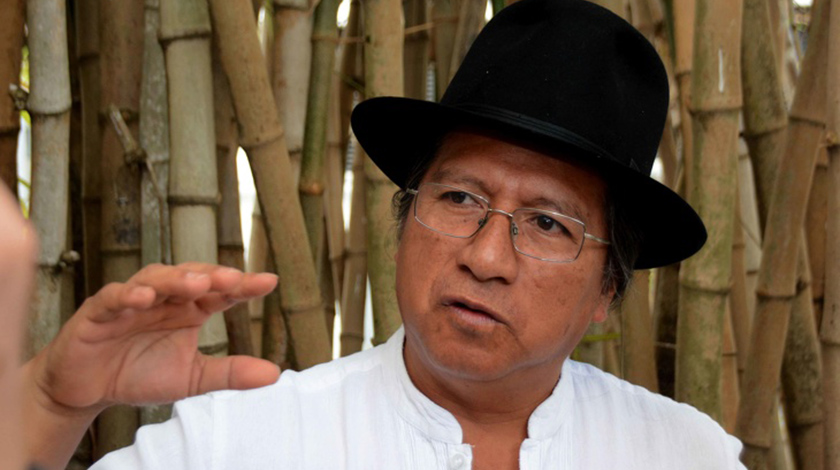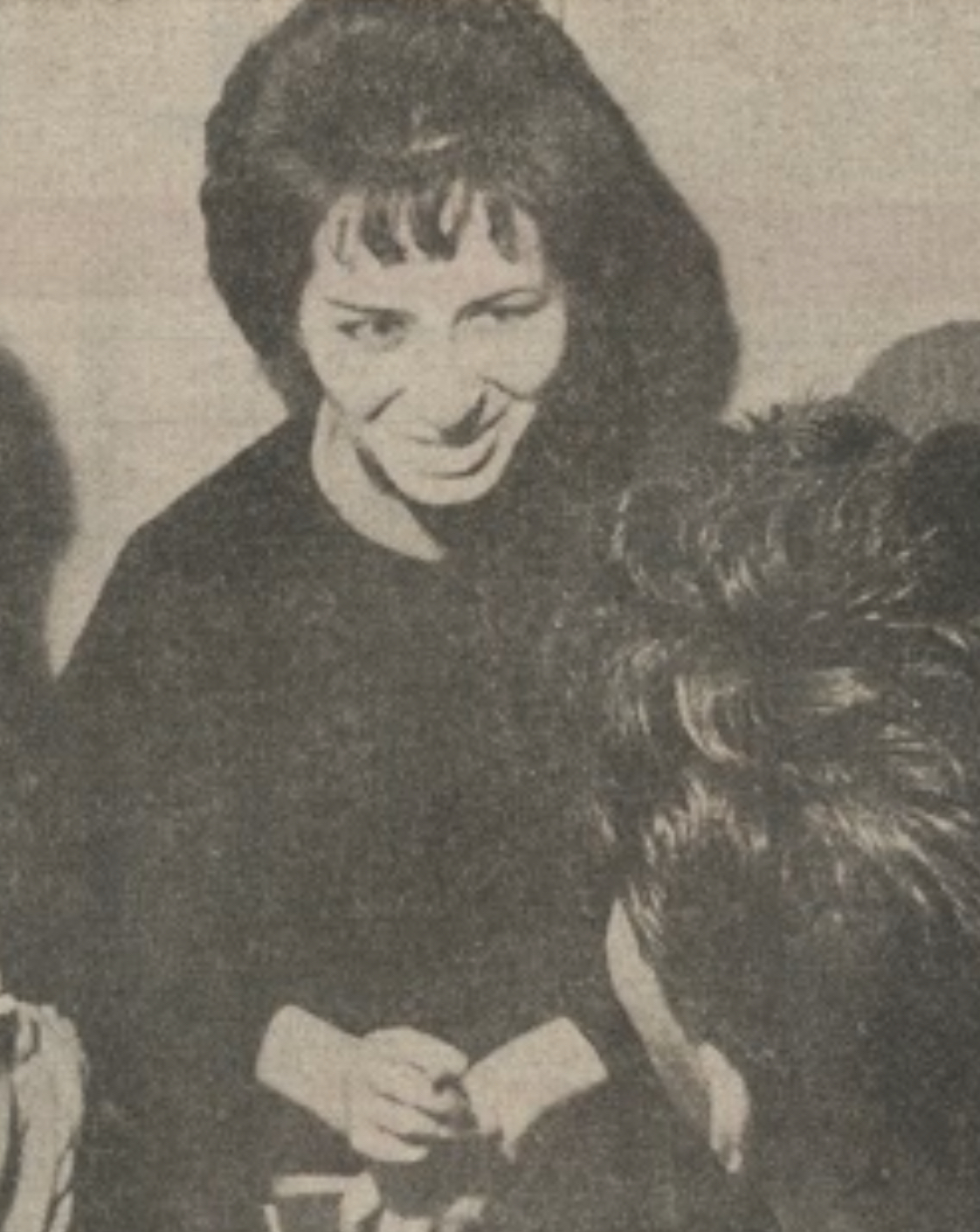Luis Alberto Bravo Piña (Milagro, 1979) is an Ecuadorian writer, widely recognized for his novels, short stories, and poetry. His poetry collections, “Antropología pop” (2010) and “Utolands” (2011), have been particularly well-received. In 2011, Piña was named as one of the “25 best-kept literary secrets of Latin America” by the Guadalajara International Book Festival. His novelistic works include “Septiembre” (2013), “Hotel Bartleby” (2013), “El jardinero de los Rolling Stones” (2016), and “Crow” (2017). Bravo’s excellence in writing was further solidified in 2022 when he received the José Donoso Pareja Narrative Award for his short novel “Asia.” This innovative work skillfully interweaves historical events with fictional narrative, recounting a journey to Guayaquil, Ecuador, undertaken by the renowned American writer and artist William Burroughs in the 1950s.
Continue reading “Luis Alberto Bravo”Category: Poets
Javier Ponce
Javier Ponce Cevallos (Quito, April 28, 1948) is an Ecuadorian author, journalist, and politician. Additionally, he spent many years working as an editorial writer for the newspapers El Universo and Hoy. He has held various public posts, including Minister of Defense (2008–2012) and Minister of Agriculture, Livestock, Aquaculture, and Fisheries (2012–2017), both held under President Rafael Correa’s administration. In 1982, he published his first book of poetry, “A espaldas de otros lenguajes,” followed by “Escrito lejos” (1984), “Los codices de Lorenzo Trinidad” (1984), “Texto en ruinas” (1999) and “Afuera es la noche” (2000). In 1990, he wrote his first novel, “El insomnio de Nazario Mieles,” followed by “Es tan difícil morir” (1994), and “Resígnate a perder” (1998) whose plot revolves around a character named Santos Feijó, the director of Quito’s Historical Archive, and his two loves, a woman named Nadja and a transvestite prostitute known as “Caramelo.”
Continue reading “Javier Ponce”Rocío Durán-Barba
Rocío Durán-Barba (Quito, 1956) is a Franco-Ecuadorian writer, poet, novelist, essayist, journalist, and painter. With over seventy published works across multiple genres, her literary contributions span both Spanish and French, often exploring themes of identity, culture, and revolution. Durán-Barba’s debut novel, París sueño eterno (1997), earned critical acclaim and was translated into French by Claude Couffon. In addition to her literary career, she has been an influential figure in academia, cultural diplomacy, and the arts, having worked with UNESCO and exhibiting her artwork internationally. Durán-Barba currently resides between Paris and Geneva.
Continue reading “Rocío Durán-Barba”Etelvina Carbo Plaza
Etelvina Carbo Plaza (Daule, Ecuador, March 18, 1834 – Lima, Peru, March 22, 1902) was an Ecuadorian poet known for her contributions to Romantic poetry. Raised in an intellectual environment, she began writing poetry as a teenager, focusing on themes of love, patriotism, and devotion to God. Her work reflected personal and political struggles, particularly influenced by her family’s exile due to political upheaval. Some of her notable poems include Las Flores de mi Jardín and La Partida. Despite not gaining widespread recognition during her lifetime, she posthumously became a significant figure in Ecuadorian literature, with schools and literary societies established in her name. Her poetry remains a testament to 19th-century Ecuadorian Romanticism.
Continue reading “Etelvina Carbo Plaza”Mariana Cristina García S.
Mariana Cristina García Salvador (Quito, June 8, 1955 – Quito, 1985) was an Ecuadorian poet, essayist and journalist. Her poetry works include: “De Alfa a Omega” (1972), “Cantos Transparentes” (1974), “De la voz Innumerable” (1977), “Con la prisa de la vida en las manos” (1983), and “Voces para recordar” (1987, published posthumously). As a journalist, she collaborated with some of the country’s newspapers and magazines in the 1970s and 1980s, including El Comercio and Diario Expreso.
Continue reading “Mariana Cristina García S.”Fernando Itúrburu
Fernando Itúrburu Rivadeneira (Guayaquil, 1960) is a writer, poet, essayist, literary critic, translator, and renowned scholar of Latin American literature. He is a Spanish professor in the Languages department at SUNY Plattsburgh where he has taught Latin American colonial and 20th century literatures, Cultural Studies, Women’s Studies, and Creative Writing. Often in collaboration with American professor Alexis Levitin, also of SUNY Plattsburgh, he has translated various Ecuadorian poets from Spanish to English. In 2009, they published “Tapestry of the Sun,” a bilingual anthology of Ecuadorian poets, which includes first-time translations of various Ecuadorian poets, largely from Guayaquil. Their translations of Ecuadorian poetry have also appeared in several literary journals. He was a member of the Guayaquil literary group Sicoseo. He has been a member of the House of Ecuadorian Culture since 1984.
Continue reading “Fernando Itúrburu”Eduardo Solá Franco
Eduardo Solá Franco (Guayaquil, Ecuador 1915 – Santiago, Chile, 1996) was a prolific and multi-faceted artist, perhaps the most diverse Ecuador has ever produced. His staggering output included not only hundreds of paintings in a variety of styles but also sculpture, illustrations for magazines and film, stage scenery, plays, poetry and novels, choreographed ballets, award-winning experimental films and, perhaps most intriguing of all, a series of 14 illustrated diaries in which he recorded, “all that which I saw of interest and that attracted me: people, landscapes, cities, states of being, spectacles, parties, and fashion.” He was also a public figure, he served for years as Ecuador’s cultural attache in Rome, mingling with artists, thinkers, and society figures of Europe, the United States, and South America.
Continue reading “Eduardo Solá Franco”Mariella Toranzos
Mariella Toranzos Narváez (Guayaquil, January 24, 1988) is an Ecuadorian journalist, poet, and editor. Before becoming the Society editor for the daily newspaper Diario Expreso, she worked at the paper as a news reporter covering politics, and, as the sub-chief of its Guayaquil section, covering cultural topics. She has also written features on contemporary Ecuadorian authors, helping to introduce them to wider audiences. As a poet, she has participated in the Ileana Espinel Poetry Festival as well as other literary events in Guayaquil.
Continue reading “Mariella Toranzos”Hipólito Alvarado
Hipólito Alvarado Espinosa de los Monteros (Guayaquil, 1929 – Guayaquil, 2016) was an Ecuadorian writer, novelist, and poet. He published the short story book, “La segunda voz” (1975) and the poetry book “Más allá del tiempo y las imágenes” (1986). Some of his poems were translated into English and included in the anthology “Tapestry of the Sun. An Anthology of Ecuadorian poetry” (2009) by Alexis Levitin and Fernando Itúrburu. Hipólito Alvarado’s non-fiction books include: “Una celebridad llamada soya” (1985) and the first volume of “Cómo escribir un cuento” [How To Write A Story] (2001).
Continue reading “Hipólito Alvarado”Agustín Vulgarín
Agustín Vulgarín Marín (Guayaquil, 1938 – 1986) was a poet, fiction writer, actor, and playwright. He penned several notable poetry books, including works such as “El pez que fuma” (1964), “El bosque de las estatuas” (1974), and “Cuadernos de Bantú” (1977). Vulgarín’s literary talent also encompassed the realm of drama, with plays like “Atahualpa: drama en dos actos” and “La Mayasquerita: drama en tres actos.” Furthermore, he left two unpublished novels, “Alfeo el de las iguanas” and “Los poriparalos.”
Continue reading “Agustín Vulgarín”Gladys Potosí Chuquín
Gladys Potosí Chuquín (Angochagua, Imbabura, February 17, 1981) is an Ecuadorian poet and activist who is a member of the Kichwa-Karanki indigenous community. Like the Otavalo, the Natabuela, and the Puruhá, the Karanki are a pre-Inca tribe who adopted the Kichwa language (Quechua) as a result of Incan influence. However, the Iberian invasion that followed the Inca one eventually imposed Spanish as the main language in the Andean area where she is from. She stopped writing in Spanish so that she could find her voice in Kichwa (Quechua), and her poetry serves as a witness to or reflection of the changes that have occurred among her people and herself. She has represented Ecuador at various literature festivals in and outside of Ecuador.
Continue reading “Gladys Potosí Chuquín”Jacinto Cordero Espinosa
Jacinto Cordero Espinosa (Cuenca, June 25, 1926 – September 29, 2018) was an Ecuadorian poet. He authored several poetry collections and his poems have been included in various poetry anthologies both at home and abroad. In addition to being a professor in the Faculty of jurisprudence at the University of Cuenca, he was the director of the Azuayan Folklore Institute and president of the Commission of the Castle of Ingapirca. He was a recipient of the National Cultural Merit Medal from the House of Ecuadorian Culture. He also received the Cultural Merit Medal from Ecuador’s Ministry of Education. He was a corresponding member of the Ecuadorian Academy of Language and a member of the House of Ecuadorian Culture. Some of his poems have been translated into English, French, Portuguese, and German.
Continue reading “Jacinto Cordero Espinosa”Ariruma Kowii
Ariruma Kowii, born Jacinto Conejo Maldonado (Otavalo, Imbabura, Ecuador, August 4, 1961) is considered one of the most important poets writing in the Quechua language. His debut poetry collection Mutsuctsurini (1988) was one of the first books to be written and published exclusively in Quechua. He is also a columist for the Quito newspaper Hoy. In 2007 he was appointed Undersecretary of Education for the Indigenous Peoples of Ecuador in the Ministry of Education, responsible for Intercultural Dialogue. He teaches Literature and Cultural Studies at the Simón Bolívar Andean University. He is the brother of the mayor of Otavalo, Mario Conejo Maldonado.
Continue reading “Ariruma Kowii”Saranelly de Lamas
Saranelly de Lamas, aka Saranelly Toledo de Lamas (Riobamba, 1933 – Guayaquil, 1992) was a poet, journalist and fiction writer. As a journalist she was the Cultural Correspondent of the newspapers El País and Occidente (Cali, Colombia) and El Tiempo de Bogota (New York, U.S.) and editor of the Art Page of the newspaper El Nacional (Caracas, Vezenuela). Her major works include: “Revenant” (1961), “Crónicas para un lugar desconocido” (1982) “Orfeo y otros cantos,” and “Los peces de jade cantan a la Paz.”
Continue reading “Saranelly de Lamas”María Luisa Lecaro
María Luisa Lecaro Pinto (Guayaquil, Ecuador, date of birth unknown – date of death unknown) was an Ecuadorian poet and pioneering feminist known for her avant-garde poetry and progressive social critiques. Writing as “Tatá” for her poetry and “Sor Marisa” in feminist essays, she contributed to Savia, Ecuador’s foremost avant-garde journal, where her work stood out for its surrealism, irony, and bold departure from the sentimental norms of the time. In 1927, Lecaro gained recognition when she placed second in Savia‘s poetry contest, with Hugo Mayo, a leading figure in Ecuadorian avant-garde, taking first. Lecaro’s essays fiercely challenged the patriarchal influence of the Catholic Church, advocating for women’s independence and self-reliance in a socially restrictive era. Although her work was largely overlooked for decades, her contributions were rediscovered in 1999 through Rodrigo Pesántez Rodas’s anthology Del Vanguardismo hasta el 50, which solidified her place as a significant voice in Ecuadorian literature and early feminist thought.
Continue reading “María Luisa Lecaro”